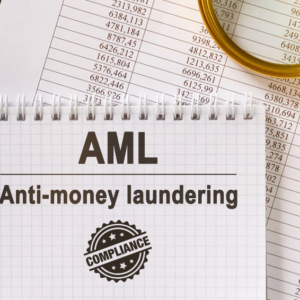The amount of electronically stored information (ESI) in modern litigation has grown exponentially in recent years. Electronic discovery, also known as eDiscovery, is a critical component in complex legal cases. The sheer volume and complexity can be complex for the lawyers and their clients, and at this point, managed services for lawyers can help with a comprehensive eDiscovery strategies in place.
Effective eDiscovery strategies must contain a range of key elements, including early case assessment, information governance, preservation, collection, processing, review, and production. This article explored the importance of comprehensive eDiscovery strategies and how they can help lawyers manage complex cases more efficiently and effectively.
Effective eDiscovery Strategies Helping Lawyers In Complex Cases
Early Case Assessment (ECA)
The Early Case Assignment (ECA) is the first and the most important step in eDiscovery, helping lawyers to identify the key issues in a case, potential sources of ECS, and the relevant custodians. With this information, lawyers can develop a focused and proportionate eDiscovery plan. The electronic discovery specialist can help in the ECS process by providing insights into the available technology solutions that can expedite the process.
Information Governance Throughout The Process
The process of managing information throughout the lifecycle by making effective policies and procedures is called information governance. This strategy helps the lawyers or organization to better manage the ESI and reduce the cost and risk associated with eDiscovery. So, lawyers need to work with eDiscovery specialties to develop effective information governance policies that address data retention and delegations as well as data privacy and security concerns.
Helps In Preservation
Preservation is the process of identifying, collecting, and safeguarding potentially relevant ESI. The eDiscovery services state preservation as soon as litigation is reasonably anticipated. They help the lawyers to work with their clients to identify the relevant ESI by notifying custodians of their obligations and implementing a litigation hold to ensure that the ESI is not deleted or altered.
Collection Of Relevant ESI
The process of gathering ESI in a way that preserves its integrity and authenticity is called a collection. It can be a complex process, especially in cases involving multiple custodians and data sources. So, lawyers need eDiscovery specialists to develop a collection plan that addresses the different types of ESI and the collection methodologies that will be used to collect the relevant data.
Processing Of Data
After the collection, the next step is the processing which involves the process of converting ESI into a format that can be searched and reviewed. Processing can be a time-consuming process when dealing with a large volume of data and need an expert to gain effective results. The professionals of eDiscovery Service help the lawyers to identify the appropriate processing techniques and meet their needs while minimizing the costs involved in processing.
Review Process
The next step is to review the eDiscovery data by evaluating the relevance, responsiveness, and privilege of the ESI. Review can be a labor-intensive process, especially when dealing with a large volume of data, and for this lawyers need efficient eDiscovery services to access the relevant information. These services help to identify the most effective and efficient review methodologies that will meet their needs.
ESI Production
Production is the process of delivering the relevant Electronically Stored Information to the opposing counsel in such a format that complies with all the rules of eDiscovery. It is very important to ensure that the production format is appropriate and free from inadvertent disclosure of confidentiality. The eDiscovery services offer various tools and techniques to provide safe and secure production of electronic case assignments to their clients.
Communication And Collaboration
Effective communication and collaboration between lawyers, clients, and eDiscovery specialists are crucial for the success of eDiscovery strategies. So, the lawyers need to maintain open communications with the clients and eDiscovery service providers throughout the process. The use of collaboration tools such as project management software, communication platforms, and shared document repositories can help with regular status updates, milestone reviews, and decision-making processes keeping the legal team in the loop.
Continuous Improvement.
Making a perfect eDiscovery strategy is not the only solution as lawyers also need to focus on continuous improvement. Continuous improvement needs constant evaluation and refining of strategy based on the feedback, data, and lessons learned from previous cases. This helps to avoid mistakes in the future by identifying the area of improvement.
Final Words
An effective eDiscovery strategy is essential for lawyers who are dealing with complex cases as they need to access huge amounts of electronic discoveries. Consulting he eDiscovery services helps lawyers to develop comprehensive and proportionate eDiscovery plan that meets their needs while minimizing the costs and risk associated with eDiscovery.
Effective communication, collaboration, and continuous improvement are critical elements for the success of eDiscovery strategies. With these strategies, lawyers can confidently manage the eDiscovery process and focus on their core legal work.






